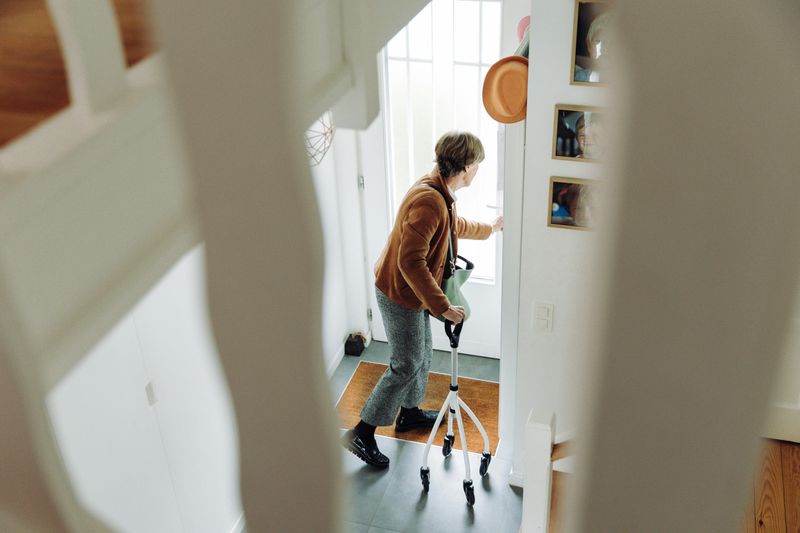10 Everyday Struggles Seniors Face That Younger Generations Don’t Think About

Growing older brings wisdom and experience, but it also introduces a host of unexpected daily challenges. Many seniors quietly navigate obstacles that younger people rarely consider until they face them themselves. Understanding these struggles helps bridge the generational gap and fosters empathy for the aging journey we’ll all experience someday.
1. Digital Divide Frustrations

Remember when rotary phones were cutting-edge technology? Many seniors do. Now they’re expected to master smartphones, apps, and online banking almost overnight while interfaces and features change constantly.
Password management alone becomes a daily battle. A grandchild might set up an account but isn’t around when the system requires an update or something stops working.
Simple tasks like paying bills or ordering groceries become stress-inducing challenges when everything moves online, leaving many seniors feeling left behind in a world that increasingly assumes digital literacy.
2. Physical Limitations That Accumulate

The jar that won’t open. That itch in the middle of your back you can’t quite reach. The top shelf that used to be accessible but now requires a step stool.
For seniors, these aren’t occasional inconveniences but daily reminders of changing abilities. Arthritis makes buttoning shirts painful, while decreased strength turns carrying groceries into a genuine workout.
Morning stiffness lasts longer, recovery from simple exertion takes days instead of hours, and activities once done without thinking now require careful planning. These small challenges compound, transforming routine tasks into energy-draining obstacles.
3. Transportation Independence Slipping Away

The car keys that once represented freedom now sometimes symbolize anxiety. Night driving becomes particularly challenging as glare intensifies and depth perception diminishes.
Many seniors face a heartbreaking choice: risk driving despite declining reflexes or surrender independence. Public transportation presents its own obstacles – confusing schedules, physical accessibility issues, and safety concerns.
Relying on family or services for rides means planning days in advance for appointments or social outings. Spontaneous trips become rare luxuries, and the simple ability to “just go somewhere” – something younger people take for granted – gradually disappears.
4. Healthcare System Navigation Nightmares

Four dreaded words—“Your claim was denied”—strike fear into seniors managing complex healthcare needs. The mountain of paperwork grows with each doctor’s visit, creating administrative burdens that would challenge even the most organized person.
Medicare’s rules and coverage gaps require constant vigilance. Prescription management becomes increasingly complicated as medication lists grow longer, with potential interactions requiring careful monitoring.
Many seniors spend hours on hold with insurance companies or pharmacies, trying to resolve billing issues or coverage questions. This invisible labor of healthcare management consumes energy and time that could be spent enjoying retirement years.
5. Shrinking Social Worlds

The holiday card list grows shorter each year. Friends move away to be closer to children, enter assisted living, or pass away, leaving social circles dramatically reduced.
Retirement eliminates workplace connections that provided daily interaction and purpose. Even attending social gatherings becomes more challenging as mobility issues increase or driving becomes difficult, particularly at night.
The phone rings less frequently, and opportunities for spontaneous conversations diminish. This gradual social contraction happens so slowly it’s barely noticeable until suddenly, many seniors realize their world has become much quieter and smaller than they ever anticipated.
6. Financial Tightrope Walking

Fixed incomes face unfixed expenses. Many seniors planned carefully for retirement, only to watch inflation and rising healthcare costs erode their savings faster than anticipated.
Every unexpected expense – a home repair, dental work not covered by insurance, or helping a family member in need – creates ripple effects throughout an already tight budget. The financial margin for error shrinks dramatically.
The anxiety of potentially outliving savings creates constant background stress. For many seniors, this means continuing to work part-time jobs well into their 70s and 80s, not for fulfillment but out of necessity, while carefully monitoring every expense with little room for small luxuries.
7. Home Safety Worries

The shower that once felt refreshing now represents a potential hazard. Seniors begin seeing their homes through a different lens – stairs without railings, poorly lit hallways, and slippery bathroom floors transform from normal features into danger zones.
Installing grab bars, removing throw rugs, and adding brighter lighting becomes necessary rather than decorative. The fear of falling creates constant low-grade anxiety, as seniors know a single fall could dramatically impact their independence.
Home modifications are often expensive and not covered by insurance, creating financial strain. Meanwhile, the emotional adjustment to seeing one’s beloved home as suddenly dangerous represents yet another invisible challenge many seniors quietly navigate.
8. Endless Medications and Prescriptions

Imagine organizing a small pharmacy on your kitchen counter every morning. For many seniors, keeping track of multiple medications—often with similar-looking pills and complicated schedules—becomes a daily puzzle that demands precision.
The consequences of mixing them up aren’t just inconvenient; they can be dangerous. Many older adults must remember which pills need food, which can’t be taken together, and when each dose is due throughout the day.
Special pill organizers help, but the mental load remains heavy. And heaven forbid the pharmacy changes manufacturers, suddenly making that familiar white heart pill blue and causing momentary panic during the morning routine!
9. Grief’s Constant Companionship

The newspaper obituary section becomes required reading. For many seniors, grief arrives not as an occasional visitor but as a permanent houseguest as spouses, siblings, and friends pass away.
The emotional burden of being the “last one standing” creates complex feelings that younger generations rarely experience until much later in life. Birthday celebrations dwindle, class reunions grow smaller, and the shared references that once connected them to their past gradually disappear.
This accumulation of loss creates a unique form of loneliness. Seniors often avoid mentioning departed loved ones to avoid making others uncomfortable, silently carrying memories of people younger generations never knew.
10. Memory Concerns and Cognitive Changes

That nagging thought—“Now, what did I come into this room for?”—is harmless for most, but for seniors it sparks deeper worries about cognitive decline.
Names slip away mid-conversation, words hover just out of mental reach, and tasks take longer to complete. The fear that these might be early warning signs rather than normal aging creates constant background anxiety.
Seniors develop elaborate systems to compensate – lists, reminders, and routines become essential tools for navigating daily life. Meanwhile, they carefully monitor themselves for changes, often keeping concerns private to avoid worrying family members or facing potential loss of independence that might come with voicing these fears.

Comments
Loading…